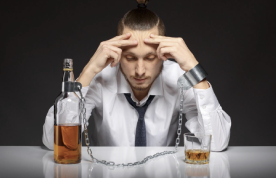Have you ever noticed a smell of alcohol on your breath? Alcohol breath is a common issue that many people face, especially after consuming alcohol at social events or while dining out. This smell of alcohol on your breath not only affects your personal hygiene but also can have serious implications, especially while you are driving.
In this blog, we will discuss the common causes of alcohol breath, potential legal consequences, and preventative tips to get rid of alcohol breath before it leads to unwanted trouble.
Causes of Alcohol Breath
Alcohol breath may be caused by a variety of reasons. It includes:
- Alcohol Consumption: The main cause of alcohol breath is the consumption of alcohol. When you drink, the alcohol enters your bloodstream through your stomach and small intestine. Your liver processes most of it, but some alcohol is expelled through your lungs, which causes the smell of alcohol on your breath.
- Fermented Foods and Drinks: Many people think alcohol is only the reason for the alcohol breath, but it is not. Fermented foods and beverages like kombucha and some fruit juices can also cause alcoholic breath. These foods and drinks may contain some small amounts of alcohol due to fermentation. So, it can produce an alcohol smell in breath, mainly if consumed in larger quantities.
- Medical Conditions: GERD can cause food and stomach acid to flow back into the esophagus, leading to bad breath, which might resemble alcohol. Also, people with liver cirrhosis or severe liver dysfunction may experience “fetor hepaticus,” which is a typical odor that is similar to alcohol.
Legal Consequences of Alcohol Breath
Alcohol breath can have significant legal consequences, particularly if you are driving. In the U.S., driving under the influence (DUI) is a serious offense. The police officers may ask you for a breathalyzer test, which measures the alcohol in your breath to estimate your blood alcohol content (BAC) and perform a field sobriety test (e.g., walking on a straight line or standing on one foot). If you fail the test, they will arrest you under a DUI case.
Here are some of the legal consequences of alcohol breath:
- Arrest: If you are stopped and suspected of being drunk because of the alcohol smell in your breath, you can be arrested.
- Fines: First-time offenders may face fines ranging from $100 to $2,000. Repeat offenders or those with a higher BAC may face even higher penalties.
- License Suspension: Your driver’s license may be suspended for several months to a year, depending on the situation.
- Jail Time: For first-time offenders, jail time could be a few days to a few months. Repeat offenders or those involved in accidents may face longer sentences.
- Probation: Instead of jail, you may be placed on probation, where you have to check in with a probation officer and possibly attend alcohol treatment programs.
- Insurance and Employment: Your car insurance rates will likely increase after a DUI. Some employers may fire or suspend you if driving is part of your job.
Preventative Tips
There is no instant fix to prevent the alcohol breath, but there are ways to minimize its effects and avoid uncomfortable or dangerous situations. Here are some practical tips:
- Hydrate and Eat: Drinking water helps flush out toxins and can reduce the intensity of alcohol breath. Eating food can slow alcohol absorption and absorb some alcohol.
- Chew Gum or Mints: While gum or mints won’t remove alcohol from your system, they can temporarily mask the smell. Opt for strong flavors, like mint or cinnamon, to overpower the odor of alcohol.
- Use Mouthwash: Mouthwash with antibacterial properties can help neutralize alcohol’s odor. Make sure to choose a mouthwash that freshens your breath and kills bacteria that contribute to the smell.
- Drink Coffee or Green Tea: Coffee or green tea can temporarily mask alcohol breath because they have strong, refreshing scents. Additionally, green tea contains antioxidants that may help your liver process alcohol more efficiently.
Conclusion
If you plan to consume alcohol, do so responsibly. Always arrange for a designated driver or use other forms of transportation if needed, and never risk driving under the influence. Unfortunately, if you are facing DUI charges, it is essential to consult a DUI attorney to challenge the arrest or reduce the sentencing and penalties.




















